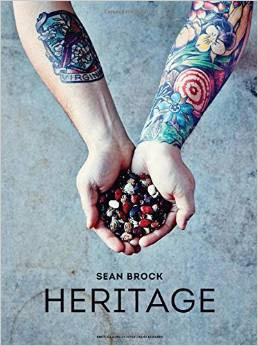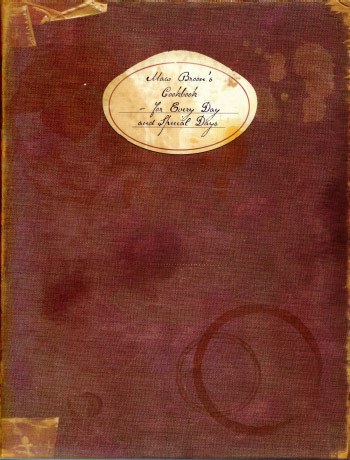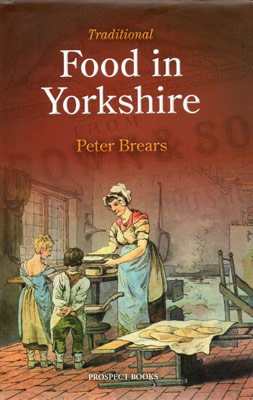Holiday Gift Guide: Books
The cookbook of the year, or at least a cookbook of the year, is Heritage from Sean Brock, executive chef at McCreary’s and Husk in Charleston, South Carolina. It is an oversized book loaded with lurid food porn, but those excessive signs of the time should not be allowed to fool anyone. Heritage is more than an aspiration ornament for the coffee table. Authors including Mario Batali, Anthony Bourdain, John T. Edge, Fergus Henderson and Blake Perkins all have found the recipes in Brock’s book irresistible. Edge on Heritage: “This is the real thing. An honest book.” Bourdain on Brock:
“He is an absolutely transformative figure. His food manages to amaze without being pretentious or inaccessible. You, too, can cook this stuff. And you should.”
Anyone with a kitchen will want a copy.

Dabbous The Cookbook is even bulkier than Brock’s book and flaunts art photography in fussy mattes that just want to tear, along with the obligatory food porn, in this case a full page photograph for every (tiny) dish. As a result, there is a lot less to Dabbous than meets the eye. For that matter there are nearly no recipes that anyone at home will cook. Lots of lukewarm baths, singed wood chips and unobtainable ingredients (Kuzu? The root also is expensive when you do find it.) render much of Dabbous out of reach.
Even so, Ollie Dabbous, whose London restaurant is the flavor of the year, has a lot of good ideas that are possible to steal in simplified form. Goose breast with barley milk and the unobtainable ‘Pardailhan’ strain of roast turnip sounds Scots and good. Go with duck breast, thicken the barley milk with flour instead of the kuzu if you like, roast instead of dry ‘poaching’ the meat within a plastic bag, reach for bog standard turnips, ditch the dried clover and you are on to something.
There is Dabbous’ signature dish, something that amounts to an overcomplicated coddled egg (no need for the decorative straw but it will be hard for most of us to obtain smoked butter) but the recipe for cod with artichokes, basil clams and mustard seems feasible. Black pudding smeared with chutney and topped with fried egg is simple genius, at least if you ignore the instruction to make your own black pudding and chutney or fry the eggs “in individual blini pans, if you have them.”
An interesting if irritating book for those requiring information on the chef of the moment and willing to innovate.
The two ‘Maw Broon’ cookbooks, Maw Broon’s Cookbook and Maw Broon’s But an’ Ben Cookbook, are based on a cartoon strip that has run since 1936 in the Glasgow Sunday Post. They purport to be handwritten kitchen notebooks stuffed and stapled with clippings from newspapers including selected ‘Maw Broon’ strips, pamphlets, product boxes, seed packets and more. Do not let the whimsical conceit fool you. Both books feature a large number of distinctively Scottish recipes. They are well conceived and accessible. Both Broons are vailable from multiple sources online.

Maw Broon′s Cookbook
It is astonishing that one of the funniest cultural satires and best cookbooks of all time remained out of print for so long. Cambridge University Press has righted this seething wrong with its facsimile of Meg Dods’ Cook and Housewife’s Manual from 1823 by the pathbreaking Scottish author and editor Christian Isobel Johnstone. If Scotland ha one of the leading culinary canons on the planet (it does), then Mrs. Johnstone is the canon’s leading light. Anyone interested in early nineteenth century mores or cooking of any kind should covet a copy.
A novel from the same period by a member, like Mrs. Johnstone, of Sir Walter Scott’s social circle, displays the same playful sensibility. In The Confessions of a Justified Sinner, James Hogg blasts the hypocritical and murderous fanaticism of holy rolling Presbyterians in eighteenth century Edinburgh. Like the Manual, The Confessions takes on weightier issues than its purported subject to great effect, and does so trough the deployment of comedy. It could as well stand as a parable about jihadists as about Covenanters. The clean, astonishingly modern prose also evokes the atmosphere of the city and its time. Reissued by The New York Review of Books in its lost classics series of paperbacks.
The NYRB Classics offer a lot of forgotten titles that make inexpensive but special gifts. One of them, The Land Breakers by the unjustly overlooked John Ehle, will hit the shelves on 25 November. Michael Ondaatje has described the book about Appalachian pioneers struggling to survive in the wilderness during the American Revolution, which never intrudes on their lives, as “a great American novel.”
Another important book has been reissued in facsimile, in this case from the estimable Prospect Books imprint. It is Culinary Jottings for Madras by the incomparable Col. Arthur Kenney-Herbert writing as ‘Wyvern.’ Readers of britishfoodinamerica will understand why Culinary Jottings is an entrancing artifact of British India as well as unimpeachable source of original recipes.
Also from Prospect Books, but hardly a reprint, Peter Brears’ new Traditional Food in Yorkshire is a tour de force, once again a book that digs deeper and ranges across more terrain than its title would suggest. Traditional Food addresses nothing less than the culture of the region; in his review at bfia, Blake Perkins has described it as a worthy heir to Dorothy Hartley’s Food in England; high praise indeed.

Everyone will clamor for a copy of Petits Propos Culinaires Number 101 (October 2014), not least for the groundbreaking essay by Blake Perkins on “George Orwell and the Defence of English Food.” Available from the Prospect Books website and at better booksellers like Kitchen Arts & Letters in Manhattan.

